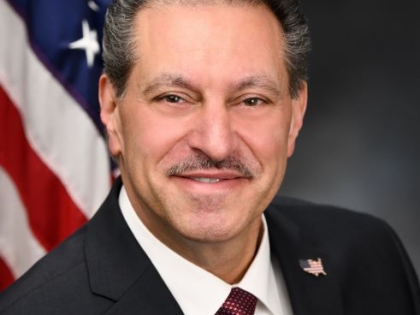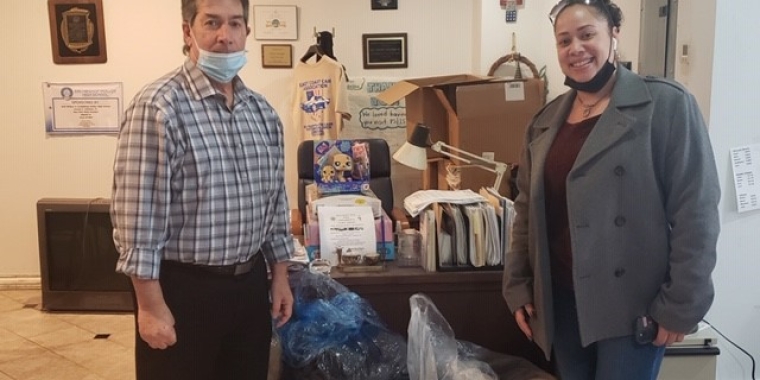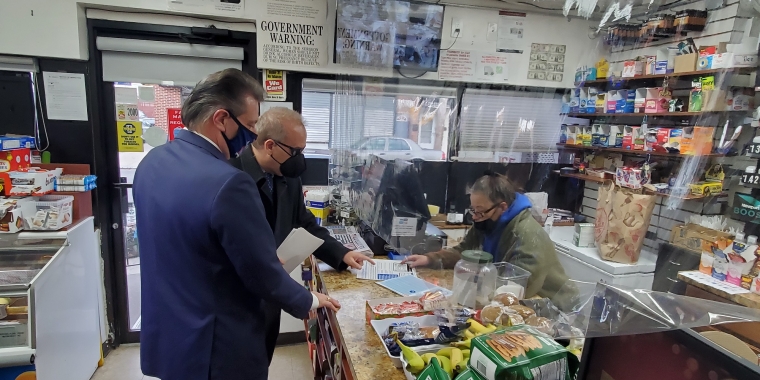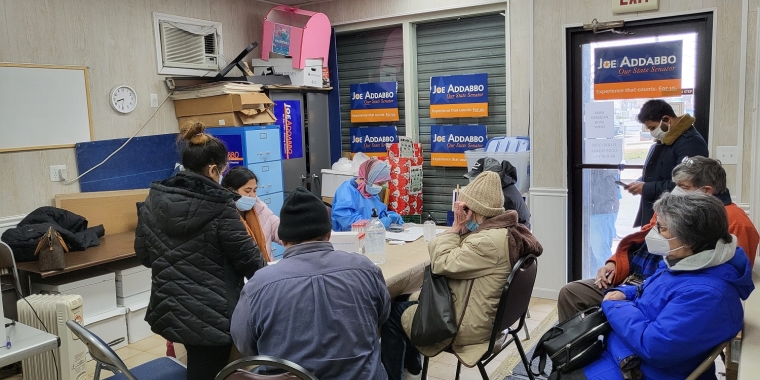
Addabbo Statement on Governor’s Support of Drilling Upstate; Poll Shows New Yorkers Are Split
Joseph P. Addabbo Jr
October 5, 2011
-
ISSUE:
- Environment
- Water
Senator Cosponsored Bill S.8129B Calling for Hydrofracking Moratorium in Upstate Watershed
Queens, NY, October 4, 2011 – NYS Senator Joseph Addabbo (D-Queens) released the following statement on Governor Cuomo’s support of hydrofracking drilling for natural gas upstate:
Governor Cuomo supports drilling for natural gas via hydrofracking because he believes drilling in the Marcellus Shale that runs through parts of New York could bring up to 37,000 jobs to communities upstate where people need work. He has long-vowed that extraction of natural gas reserves with hydraulic fracturing in the state would not be at the expense of human health or adversely impact the environment. The governor did put some critical areas off limits to the process of blasting water, sand and chemicals into underground rock to tap natural gas: the watersheds of New York City and Syracuse. But an environmental study released last month by the Department of Environmental Conservation proposes to limit drilling within 1,000 feet of tunnels and aqueducts that deliver water to those cities—very different from the seven-mile buffer zone that New York City recommended. The governor must be cautious, not too hasty, otherwise gas drilling could damage the lands, communities and water quality for millions of New Yorkers.
I believe the governor is rushing into dangerous territory by planning to issue proposed regulations for drilling this month, with the public only having until December 12 to comment on the draft environmental study. His administration should wait until after the final study is completed before drawing up the regulations. How do we store and treat millions of gallons of wastewater laced with potentially toxic chemicals that are expelled via fracking? Most New York sewage plants are not currently equipped to get rid of the wastewater. There should also be some way of phasing in drilling permits so that projects do not overwhelm rural communities. The state regulators must closely monitor such projects.
A recent Quinnipiac University poll of over 1,000 registered voters from September 13-18, showed that while New York voters support by a thin 45-41 percent margin, drilling for natural gas in the Marcellus Shale because they think economic benefits outweigh the environmental concerns, upstate voters are divided, with 47 percent opposed because they are more worried about the environment and 43 percent in support. New York City voters split on drilling 41-41 percent; suburban voters support drilling 56-31 percent. Support is 69-20 percent among Republicans, and 47-42 percent among independent voters, while Democrats are opposed 52-35 percent. Men support drilling 52-39 percent; women oppose drilling 44-39 percent – an obvious gender gap. New York State voters say tax the companies that drill for natural gas by 51-36 percent. And, they believe drilling will create jobs by 74-19 percent, with similar support among upstate, New York City and suburban voters. Hydrofracking will damage the environment voters believe 51-13 percent, with 35 percent who don’t know. Upstate voters had a strong concern about the environment, 54-16 percent. So voters are less emphatic about the process damaging the environment than their overwhelming belief hydrofracking will produce jobs. Upstate voters, who have the most to gain in terms of jobs and the most to lose in terms of environment, oppose natural gas drilling, while suburban voters support it.
Families in other states--Texas, Colorado, and Pennsylvania--that have rushed into drilling for natural gas via hydrofracking tell of filling jars with brown, odor ridden water that comes out of their household water taps.
My fear is their story becomes the story of our families, our schools, our senior centers and our businesses. The possible negative impact is frightening and the problem could be bigger than any of us can imagine. Because not only could our water be not drinkable, it also cannot be used to bathe, cook, or really be used for any purpose. The economic devastation could be enormous. The personal and economic toll may be larger than anything we have ever faced. Not only is our drinking water in danger, but the process itself is flawed. Hydrofracking accidents in Pennsylvania in the summer of last year took the lives of three workers. All this can be avoided for our people.
The large withdrawals of water required for hydrofracking could disrupt surface and ground water ecosystems for decades to come, and improper management of drilling and hydrofracking chemicals, drilling waste, and wastewater could pollute surface water and/or groundwater and have long-lasting impacts on our agricultural industry and environment.
I am not against drilling for gas, but I did support the idea of holding off on all hydrofracking drilling until the New York State Department of Environmental Conservation completed its report as to the safety of this process. I believe we should rationally postpone further drilling just until we know more about the safety concerns. Therefore, I respectfully disagree with Governor Andrew Cuomo's wanting to lift the moratorium and cancel a bipartisan and common-sense bill passed by the Legislature in 2010. That bill was based on factual information gathered from environmental advocates, university experts and community members that met the real-world concerns of workers, families and farmers and that would have protected the drinkable water supply for over 12 million New Yorkers.
I remain convinced that unrestricted hydrofracking activity will create a clear, present, and potentially permanent danger to the health and safety of millions of New Yorkers. Much of the Southern Tier, Central New York, the Hudson Valley and New York City draw their water from areas that were not fully protected by former Governor Paterson’s Executive Order vetoing the bill I cosponsored calling for a moratorium.
Once again, taxpayers are being asked by the energy industry to believe their drilling practices are safe and clean, but we need to look no further than the massive BP spill in the Gulf of Mexico following a deep-water drilling platform explosion, to recognize the importance of fully understanding the impact of drilling before breaking ground. Without a thoughtful and comprehensive moratorium on hydrofracking, access to clean, drinkable water will be in jeopardy, and the health of millions put at risk. That is unacceptable.
Environmental advocates, university experts, farmers, independent policy groups and community members played an active role in crafting our legislation. We are deeply troubled the former and current governors failed to heed their advice and address their concerns, and instead, caved to pressure from a small but vocal group of oil and gas industry executives who care more for their bottom line than the safety of New Yorkers.
We're prepared to continue this fight to protect the water supply for millions of New Yorkers and to seek alternatives to hydrofracking.
# # #


